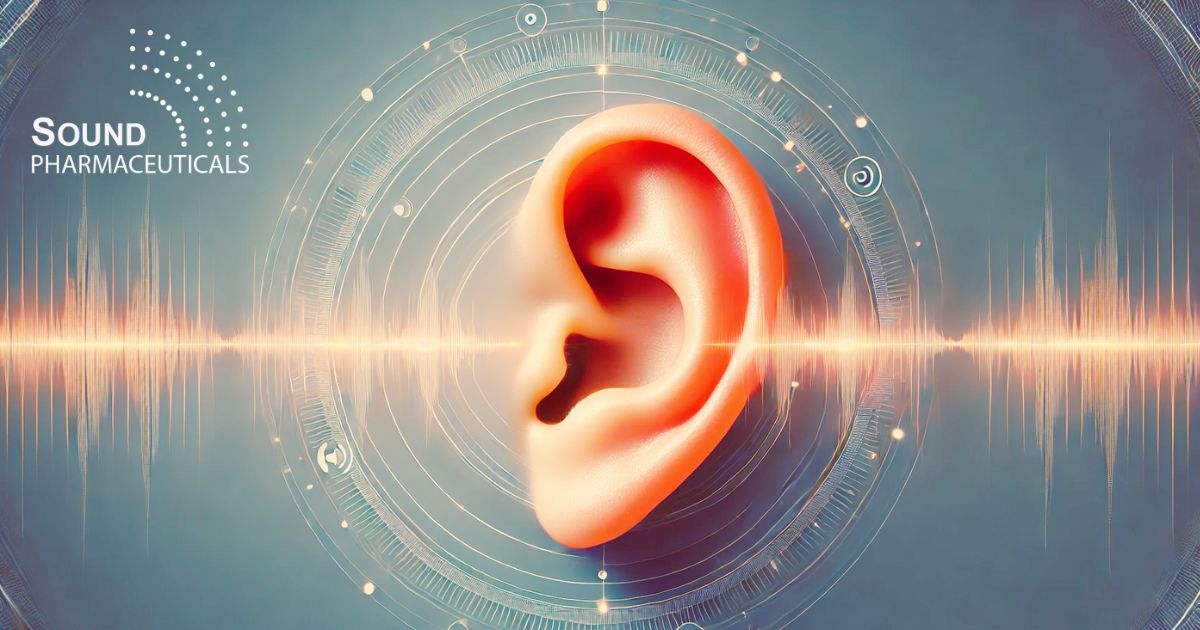SEATTLE, WASHINGTON — Sound Pharmaceuticals has announced the completion of the Phase 3 clinical trial for SPI-1005, a novel anti-inflammatory treatment for Meniere’s Disease (STOPMD-3). SPI-1005, an oral capsule taken twice daily, is the only potential therapeutic to show significant improvement in hearing loss and tinnitus in Meniere’s Disease patients, as demonstrated in two previous studies.
The STOPMD-3 study enrolled patients in a randomized controlled trial (RCT) for three months, followed by an open label extension (OLE) of SPI-1005 for six months, with an optional additional six months. This trial is the longest treatment study involving an investigational drug for hearing loss or tinnitus.
Data unblinding and presentation of interim results will occur this quarter.
STOPMD-3 Clinical Trial
The STOPMD-3 randomization began on August 2, 2022, and the last patient visit for the OLE 12-month period was completed on July 25, 2024. A total of 254 patients were screened for eligibility at 11 sites, including leading academic centers in the U.S. Out of these, 221 eligible patients were randomized to either the SPI-1005 treatment (400 mg twice daily for 28 days) or a matching placebo and followed for 84 days. Subsequently, 201 patients continued onto the SPI-1005 OLE for up to six and twelve months.
SPI-1005 is the only investigational new drug tested in a Phase 3 trial aiming to improve hearing loss, tinnitus, and dizziness over the past three years. The trial was led by Dr. Paul Lambert, Distinguished University Professor and Chair Emeritus of the Dept. of Otolaryngology-HNS at MUSC in Charleston, SC, and past President of the American Neurotologic Society. Dr. Lambert highlighted that this Phase 3 study is the longest continuous treatment trial aimed at improving hearing loss and tinnitus in Meniere’s Disease patients.
“To our knowledge, this Phase 3 study is the longest continuous treatment trial to improve hearing loss/tinnitus in patients living with Meniere’s Disease”
–Dr. Paul Lambert
About Meniere’s Disease
Meniere’s Disease (MD) is diagnosed by brief periods of episodic vertigo or dizziness, fluctuating low frequency hearing loss, and intermittent or constant tinnitus, and is thought to be due to a swelling of the inner ear. Patients are typically diagnosed between 40-65 years of age, and the auditory symptoms of hearing loss and tinnitus often involve only one ear. Some patients experience aural fullness or pressure in the affected ear that can also contribute to dizziness. As patients age, the hearing loss and tinnitus become worse resulting in severe to profound hearing loss or intractable tinnitus. For the definitive diagnosis of MD, the American Academy of Otolaryngology-Head & Neck Surgery guidance requires audiometric documentation of ≥30 dB of low frequency hearing loss in at least one ear using pure tone audiometry (PTA). Loss of speech discrimination, especially in noisy environments or when tinnitus is present, is common in MD and other forms of sensorineural hearing loss. MD is currently managed with low salt diets, thiazide diuretics, and oral or locally injected steroids. Unfortunately, this standard of care has not been proven to be effective and is not FDA-approved for the treatment of definite or probable MD.
About SPI-1005
SPI-1005 is an investigational new drug that contains ebselen, a new chemical entity. Ebselen is a selenorganic compound that mimics and induces glutathione peroxidase (GPx) activity and is effective in reducing neuroinflammation across the central and peripheral nervous system. GPx activity is critical to several cell types and tissues in the inner ear, retina, prefrontal cortex of brain, lung, and kidney, and is often reduced during exposures to environmental insults or aging. Loss of GPx activity has been shown to result in sensorineural hearing loss in multiple animal models. SPI-1005 is being developed for several neurotologic indications including noise-induced hearing loss and two types of ototoxicity (hearing loss, tinnitus, dizziness, or vertigo) caused by aminoglycoside antibiotics (such as tobramycin or amikacin) or platinum-based chemotherapy (such as cisplatin or carboplatin). To date, no significant drug-drug interactions have been observed across multiple study populations including bipolar mania and treatment resistant depression.
About Sound Pharmaceuticals
A privately held biotechnology company is testing SPI-1005 under five other active Investigational New Drug Applications involving several neurotologic indications including aminoglycoside-induced ototoxicity co-funded by the CF Foundation and cochlear implant patients co-funded by MED-EL. Details of the SPI-1005 clinical trials can be viewed online at www.clinicaltrials.gov or by visiting www.soundpharma.com.
Source: Sound Pharmaceuticals







